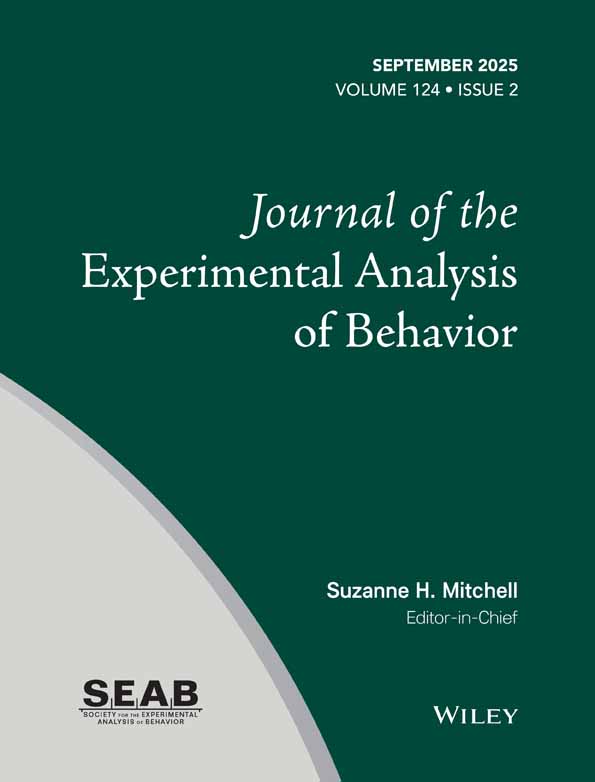BEHAVIORAL CONTRAST AND INHIBITORY STIMULUS CONTROL AS RELATED TO EXTENDED TRAINING
This paper is based on a dissertation submitted to the faculty of Pure Science of Columbia University in partial fulfillment of the requirements for the Ph.D. degree. I wish to thank H. S. Terrace for his sponsorship of this research. I also wish to thank J. A. Nevin and B. A. Schneider, and Scott Parker for their assistance during the execution and writing stages of the present project. This research was supported by Research Grant HD-00930 from the National Institute of Health and by Research Grant GB-4686 from the National Science Foundation to H. S. Terrace.
Abstract
Pigeons received discrimination training in which the presence of a white field was correlated with variable-interval reinforcement and the presence of a monochromatic field was correlated with extinction. Responses during the negative stimulus prolonged its duration. Five experimental groups each received a different number of discrimination sessions up to 70 sessions. The last session was followed by a wavelength generalization test. The control group was tested both before and after four discrimination sessions. Responding to the positive training stimulus was enhanced in all groups by the discrimination procedures. This enhancement tended to decrease over sessions in some animals but it never disappeared in others. Responding to the test stimuli preceding discrimination training was minimal around the negative stimulus and increased in either direction away from that wavelength. Responding to the test stimuli was not systematically related to the amount of discrimination training.




